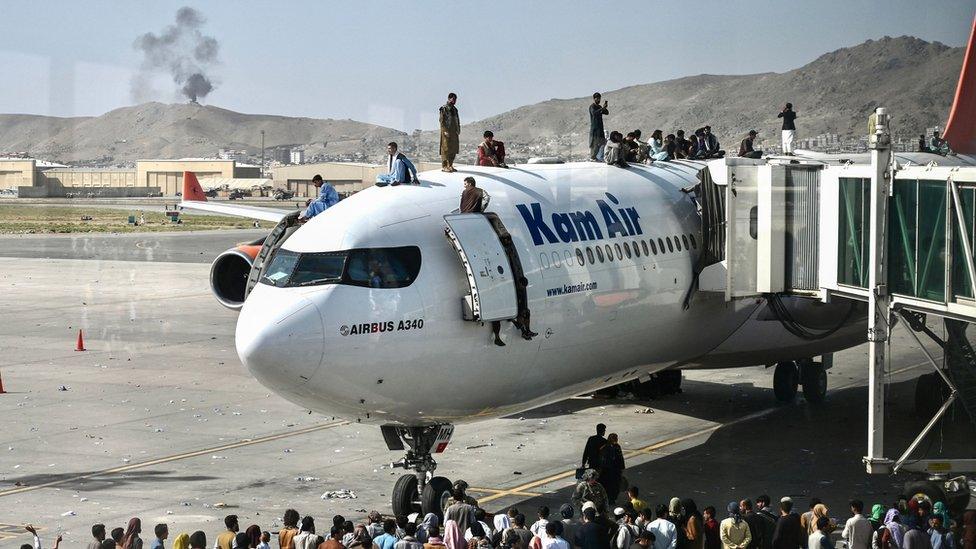Afghan families to be housed at military bases
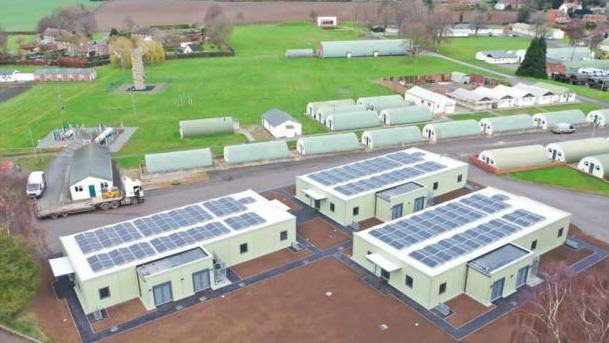
About 200 people who have escaped from the Taliban are set to arrive at Nesscliffe barracks
- Published
Hundreds of people who escaped from the Taliban in Afghanistan are to arrive at military bases in Shropshire over the coming weeks.
The overwhelming majority - some 200 people - will be accommodated at Nesscliffe barracks, with a further 17 to follow later in the winter at RAF Cosford.
They will be temporarily accommodated there as part of the Afghan Relocations and Assistance Policy (ARAP).
The scheme supports Afghan citizens who worked with or for the UK government in their homeland.
Shropshire councillor Ed Potter said there had been increased activity at Nesscliffe in recent days, with the first arrivals expected next week.
According to the local authority, people placed at the base were expected to stay for about six weeks, external before moving into a "settled housing option", anywhere in the UK.
"I have been assured that the vast majority of the support needed for these individuals and families is being provided on the camp by the MoD [Ministry of Defence] and other agencies locally," Mr Potter said.
He added he had been working to establish from the government what might be required from the authority, and any potential impacts on the community.
Those at RAF Cosford would be mainly supported by Shropshire Council, with backing from Telford and Wrekin Council, a spokesperson said.
They will be given homes on the base before they are resettled in Shropshire, according to the group Shropshire Supports Refugees.
"They've already got their refugee status, they are just here to relocate and we're going to help them to be a part of the community," Amanda Jones, from the organisation, said.
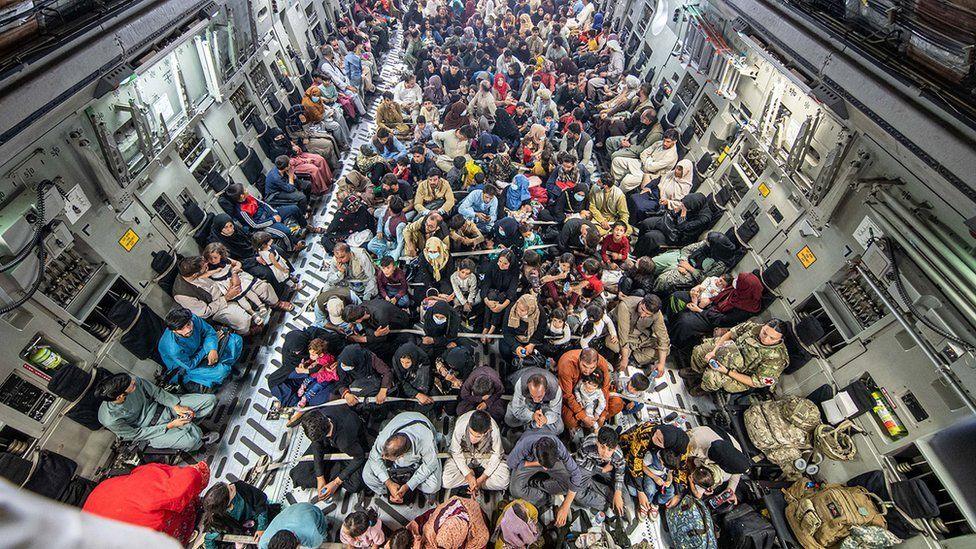
The UK government introduced resettlement schemes after the evacuation of thousands of people during the western withdrawal from Afghanistan
The ARAP scheme covers those who have already been assessed as having a right to come to the UK.
It is restricted to those deemed at significant enough risk, such as interpreters and translators.
Mr Potter said that most people in the area had reacted positively to the news, and were keen to help those arriving.
"On the whole, residents have been very supportive, but just want more information," he explained.
He said he planned to visit the site later on Thursday to find out more about the preparations.
Follow BBC West Midlands on Facebook, external, X, external and Instagram, external. Send your story ideas to: newsonline.westmidlands@bbc.co.uk, external
Related topics
- Published9 November 2023
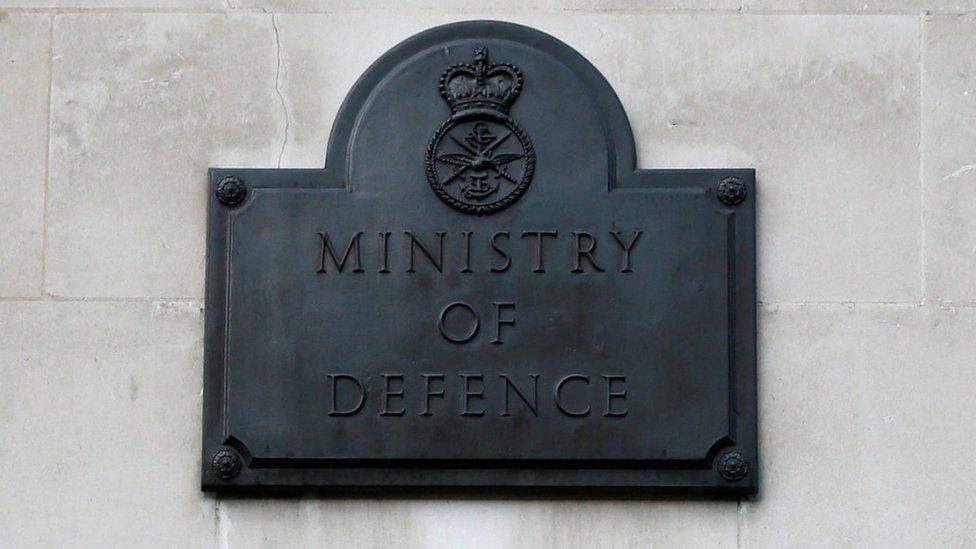
- Published16 August 2022
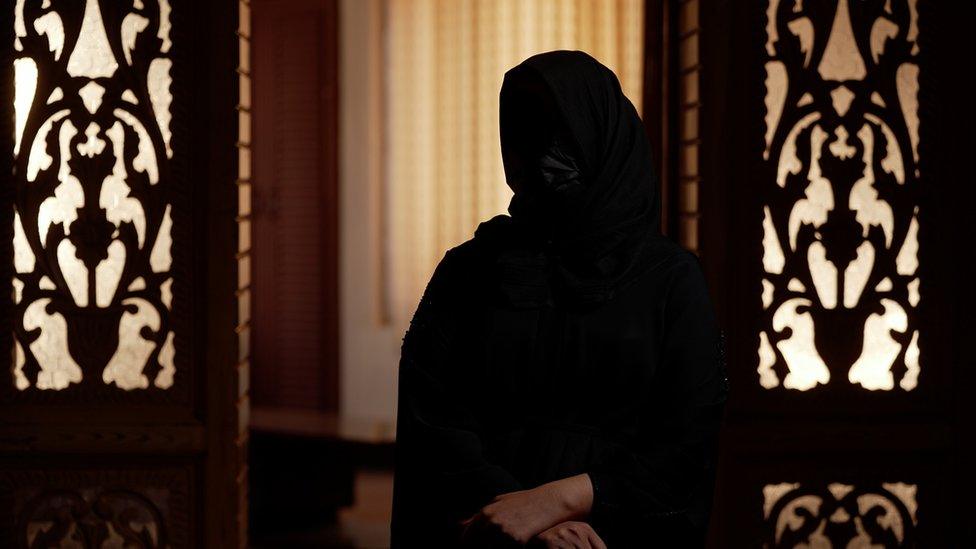
- Published17 August 2021
